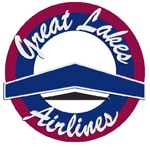
 The airline industry is in a sorry state of affairs. From the bungled merger of U.S. Airways with America West in 2006 to the recent efforts of American Airlines to use the bankruptcy process to cancel its union contracts, the industry is attempting to return to profitability at the expense of its employees.
The airline industry is in a sorry state of affairs. From the bungled merger of U.S. Airways with America West in 2006 to the recent efforts of American Airlines to use the bankruptcy process to cancel its union contracts, the industry is attempting to return to profitability at the expense of its employees.
The take-it-or-leave-it negotiating tactics that result from bankruptcies and mergers are all too common in today’s airline industry.
Throughout the turmoil, the employees of the nation’s airlines continue to show up for work and staff more than 25,000 flights every day. UTU members who fly for Great Lakes Airlines are no exception – at least for the time being. Local 40 flight attendants were at the bargaining table with Great Lakes management for 10 years; and Local 40 pilots have been facing a negotiating stone wall for three years.
Following years of fruitless negotiations, and under provisions of the Railway Labor Act, the UTU asked the National Mediation Board to declare an impasse in talks and proffer binding arbitration. “As the NMB mediator has observed, Great Lakes management is not bargaining in good faith and has declined even to consider UTU contract changes,” said UTU Assistant President John Previsich, who is assisting in negotiations.
Local 40 pilots continue to await a decision from the NMB. If the NMB does make that proffer, and Great Lakes rejects it, the clock will start a 90-day countdown to either a negotiated settlement, presidential emergency board recommendations for settlement or a work stoppage if a settlement cannot be reached before the 90-day clock expires.
“Self-help is not UTU’s desired outcome for this process, as it would have a significant negative impact on our members and the public,” Previsich said. “The UTU’s desire is that the parties reach a mutually satisfactory agreement and avoid any interruption in service as Great Lakes is the lone airline serving many small cities and towns.
“The fact remains that our pilots’ working conditions and wages at Great Lakes are substandard, putting daily pressure on those pilots whose highest priority is to fly passengers safely,” Previsich said. “Great Lakes pilots, with extensive training and experience, are among the lowest paid of any scheduled passenger airline in the United States, with some paid less than entry-level retail and food service jobs.”
While the consequences of a work stoppage can be severe for both the company and its employees, the pilot group on Great Lakes stands united, awaiting action from the NMB.
In the words of a member of the negotiating team: “The airline refuses to pay a living wage while reaping millions in profit every year. The pilots are tired of it and we will do whatever it takes to improve the conditions for our members.”
Related News
- Razor blade found on brake wheel
- Coming Soon: SMART-TD Voluntary Income & Life Protection (VILP) Program
- Senate Passes Tax Bill Without Including Railroaders
- SMART-TD Honors the Retirement of Brother Greg Hynes: A Visionary, a Fighter, and a Legend
- SMART-TD Calls on U.S. Senate to Support the Cantwell Amendment and Protect Rail Workers
- Yardmaster Protection Act Introduced
- PHOTO GALLERY: 2025 Denver Regional Training Seminar
- Fighting for Stronger Heat Protections for Rail Workers
- Regional Training Seminar Sets (Mile-High) Record in Denver
- Registration Open for Anaheim Regional Training Seminar